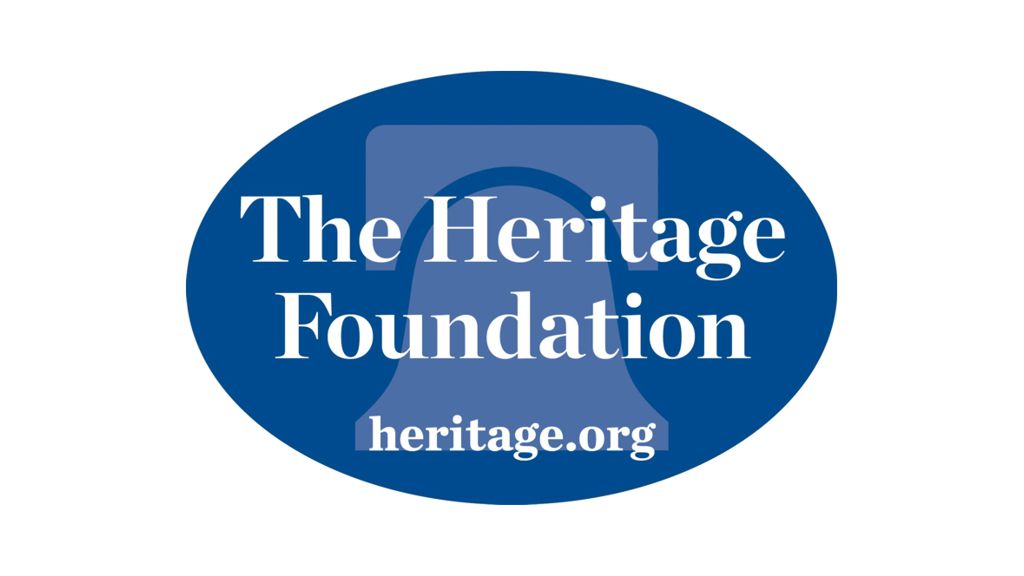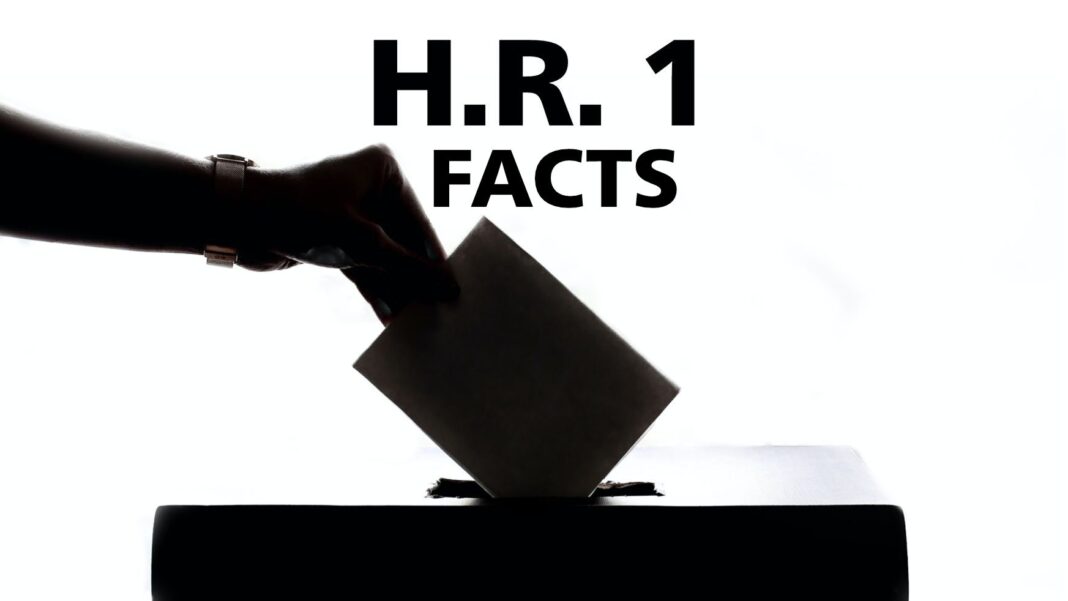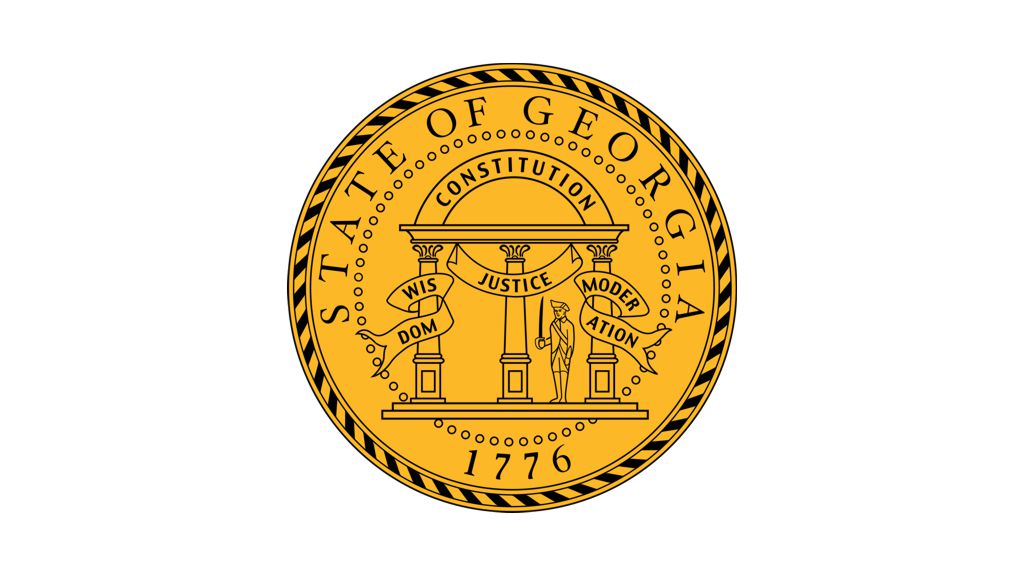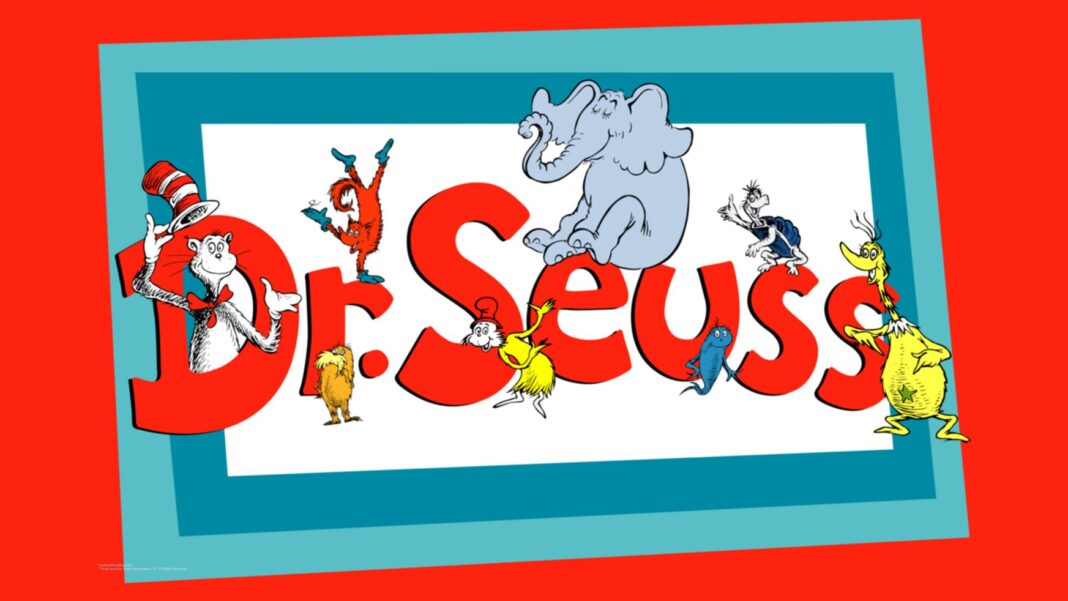H.R. 1 imposes unnecessary, unwise, and unconstitutional mandates on the states and reverses the decentralization of the American election process—which is necessary for protecting our liberty and freedom.
Phill Kline Discusses H.R. 1 Above
Phill Kline, director of The Amistad Project, explains the danger of H.R. 1: it’s the Democrats’ plan to institutionalize the fraud they used to steal the election.
The so-called “For the People Act” (H.R. 1, hr 1, hr1) is for the corrupt politicians. The bill would legalize ballot harvesting, ban voter I.D. and give Democrats full control over ballots to steal elections in perpetuity.
“It is the left’s effort to create one party rule through radicalizing our elections,” Kline said.
(H. R. 1, H.R. 1, H.R.1, HR 1, HR1,hr 1,hr1)

Summary
H.R. 1 would federalize and micromanage the election process administered by the states, imposing unnecessary, unwise, and unconstitutional mandates on the states and reversing the decentralization of the American election process—which is essential to the protection of our liberty and freedom. It would (among other things) implement nationwide the worst changes in election rules that occurred during the 2020 election; go even further in eroding and eliminating basic security protocols that states have in place; and interfere with the ability of states and their citizens to determine the qualifications and eligibility of voters, ensure the accuracy of voter registration rolls, secure the fairness and integrity of elections, and participate and speak freely in the political process.
- H.R. 1 federalizes and micromanages the election process administered by the states, imposing unnecessary, unwise, and unconstitutional mandates on the states.
- H.R. 1 reverses the decentralization of the American election process—which is necessary for protecting our liberty and freedom.
- It would implement nationwide the worst changes in election rules that occurred in 2020 and further damage or eliminate basic security protocols.
The Issue
H.R. 1 would federalize and micromanage the election process administered by the states, imposing unnecessary, unwise, and unconstitutional mandates on the states and reversing the decentralization of the American election process—which is essential to the protection of our liberty and freedom. It would implement nationwide the worst changes in election rules that occurred during the 2020 election and go even further in eroding and eliminating basic security protocols that states have in place. The bill would interfere with the ability of states and their citizens to determine the qualifications and eligibility of voters, to ensure the accuracy of voter registration rolls, to secure the fairness and integrity of elections, to participate and speak freely in the political process, and to determine the district boundary lines for electing their representatives.
What H.R. 1 Would Do:
- Seize the authority of states to regulate voter registration and the voting process by forcing states to implement early voting, automatic voter registration, same-day registration, online voter registration, and no-fault absentee balloting.
- Make it easier to commit fraud and promote chaos at the polls through same-day registration, as election officials would have no time to verify the accuracy of voter registration information and the eligibility of an individual to vote and could not anticipate the number of ballots and precinct workers that would be needed at specific polling locations.
- Hurt voter turnout through 15 days of mandated early voting by diffusing the intensity of get-out-the-vote efforts; it would raise the cost of campaigns. Voters who vote early don’t have the same information as those who vote on Election Day, missing late-breaking developments that could affect their choices.
- Degrade the accuracy of registration lists by requiring states to automatically register all individuals (as opposed to “citizens”) from state and federal databases, such as state Departments of Motor Vehicles, corrections and welfare offices, and federal agencies such as the Social Security Administration, the Department of Labor, the Federal Bureau of Prisons, and the Center for Medicare and Medicaid Services of the Department of Health and Human Services. This would register large numbers of ineligible voters, including aliens, and cause multiple or duplicate registrations of the same individuals and put federal agencies in charge of determining a person’s domicile for voting purposes (as well as that individual’s taxing state).
- Constitute a recipe for massive voter registration fraud by hackers and cyber criminals through online voter registration that is not tied to an existing state record, such as a driver’s license. It would make it a criminal offense for a state official to reject a voter registration application even when it is rejected “under color of law” because the official believes the individual is ineligible to vote. It would also require states to allow 16-year-olds and 17-year-olds to register; when combined with a ban on voter ID and restrictions on the ability to challenge the eligibility of a voter, this would effectively ensure that underage individuals could vote with impunity.
- Require states to count ballots cast by voters outside of their assigned precincts, overriding the precinct system used by almost all states that allows election officials to monitor votes, staff polling places, provide enough ballots, and prevent election fraud.
- Mandate no-fault absentee ballots, which are the tool of choice for vote thieves. It would ban witness signature or notarization requirements for absentee ballots; force states to accept absentee ballots received up to 10 days after Election Day as long as they are postmarked by Election Day; and require states to allow vote trafficking (vote harvesting) so that any third parties—including campaign staffers and political consultants—can pick up and deliver absentee ballots.
- Prevent election officials from checking the eligibility and qualifications of voters and removing ineligible voters. This includes restrictions on using the U.S. Postal Service’s national change-of-address system to verify the address of registered voters; participating in state programs that compare voter registration lists to detect individuals registered in multiple states; or ever removing registrants due to a failure to vote no matter how much time has elapsed. It also would substantially limit the public release of voter registration information, making it almost impossible for nonpartisan organizations to verify the accuracy of registration rolls, and prohibit states from using undeliverable election mail as a basis for challenging a registrant’s eligibility.
- Ban state voter ID laws by forcing states to allow individuals to vote without an ID and merely signing a statement in which they claim they are who they say they are.
- Violate the First Amendment with respect to a vast range of legal activity. Voter intimidation or coercion that prevents someone from registering or voting is already a federal crime under the Voting Rights Act and the National Voter Registration Act. But H.R. 1 would add a provision criminalizing “hindering, interfering, or preventing” anyone from registering or voting, which is so vague and so broad that it could prevent providing any information to election officials about the ineligibility of an individual, such as an applicant not being a U.S. citizen.
- Expand regulation and government censorship of campaigns and political activity and speech, including online and policy-related speech. H.R. 1 would impose onerous legal and administrative compliance burdens and costs on candidates, citizens, civic groups, unions, corporations, and nonprofit organizations. Many of these provisions violate the First Amendment, protect incumbents, and reduce the accountability of politicians to the public; its onerous disclosure requirements for nonprofit organizations would subject their members and donors to intimidation and harassment—the modern equivalent of the type of disclosure requirements the U.S. Supreme Court in NAACP v. Alabama (1958) held violated associational rights protected by the Fourteenth Amendment.
- Reduce the number of Federal Election Commission members from six to five, allowing the political party with three commission seats to control the commission and engage in partisan enforcement activities.
- Prohibit state election officials from participating in federal elections and impose numerous other “ethics” rules that are unconstitutional or unfairly restrict political activity, eliminating the ability of the residents of specific states to make their own decisions about what rules should govern their state government officials.
- Require states to restore the ability of felons to vote the moment they are out of prison regardless of uncompleted parole, probation, or restitution requirements. Section 2 of the Fourteenth Amendment gives states the constitutional authority to decide when felons who committed crimes against their fellow citizens may vote again. Congress cannot override a constitutional amendment with a statute.
- Transfer the right to draw congressional districts from state legislatures to “independent” commissions whose members are unaccountable to voters. H.R. 1 would make it a violation of federal law to engage in “partisan” redistricting and mandate the inclusion of alien population, both legal and illegal, in all redistricting. This is an anti-democratic, unconstitutional measure that would take away the ability of the citizens of a state to make their own decisions about redistricting.
- Authorize the Internal Revenue Service to engage in partisan activity. H.R. 1 would permit the IRS to investigate and consider the political and policy positions of nonprofit organizations before granting tax-exempt status, thus enabling IRS officials to target organizations engaging in First Amendment activity with disfavored views.
- Limit access to federal courts for anyone challenging H.R. 1. The bill would prohibit the filing of any lawsuits challenging the constitutionality of H.R. 1 anywhere except in the District Court for the District of Columbia and would allow the court to order all plaintiffs and intervenors, regardless of their number (such as all 50 states), “to file joint papers or to be represented by a single attorney at oral argument,” severely limiting the legal representation and due process rights of challengers.
- Establish a “Commission to Protect Democratic Institutions” that would threaten the independence of the judiciary. H.R. 1 defines “democratic institutions” as those that are “essential to ensuring an independent judiciary, free and fair elections and the rule of law.” The commission would be given the authority to compel judges to testify and justify their legal decisions, threatening their independent judgment and subjecting them to political pressure and harassment.
The Facts About H.R. 1: The “For the People Act of 2021”
FS_199 BILLS-117hr1ihSource: Heritage Foundation






